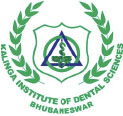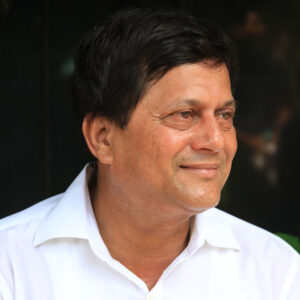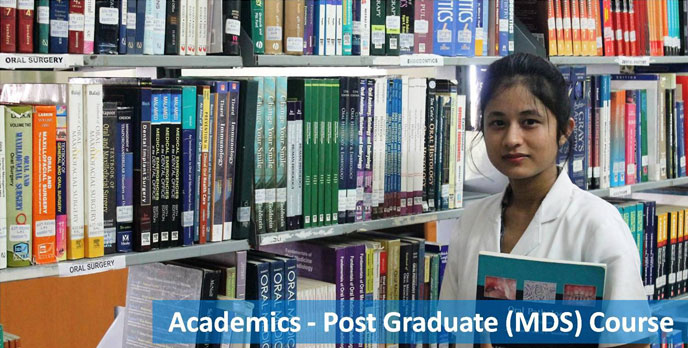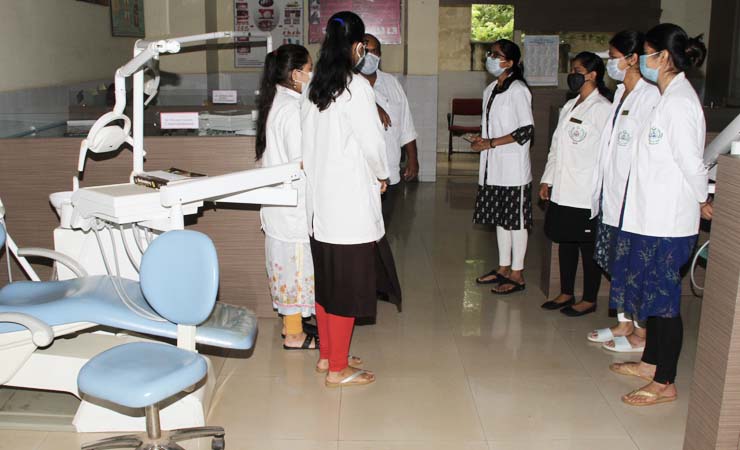Project Description
LEARNING OBJECTIVES
Program Objectives (POs) & Course Outcomes (COs)
Program Educational Objectives PEOs
DURATION OF COURSE
[ 3 Years ]All the candidates for the degree of MDS are required to pursue the recommended course for at least three academic years as full time candidates in KIDS
BRANCHES:
- Orthodontics &Dentofacial Orthopedics
- Conservative Dentistry & Endodontics
- Prosthodontics and Crown & Bridge
- Oral & Maxillofacial Surgery
- Pedodontics & Preventive Dentistry
- Oral Pathology & Microbiology
- Public Health Dentistry
- Periodontology
- Oral Medicine & Radiology
Specialities
- Orthodontics & Dentofacial Orthopedics
- Conservative Dentistry & Endodontics
- Prosthodontics and Crown & Bridge
- Oral & Maxillofacial Surgery
- Pedodontics & Preventive Dentistry
- Oral Pathology & Microbiology
- Public Health Dentistry
- Periodontology
- Oral Medicine & Radiology
Academics
METHOD OF TRAINING
The training of postgraduate for degree shall be full time with graded responsibilities in the management and treatment of patients entrusted to his/her care. The participation of the students in all facets of educational process is essential. Every candidate should take part in seminars, group discussions, grand rounds, case demonstration, clinics, journal review meetings, CPC and clinical meetings. Every candidate should participate in the teaching and training programme of undergraduate students. Training should include involvement in laboratory and experimental work, and research studies
Attendance, Progress and Conduct
A candidate pursuing degree/diploma course should work in the concerned department of the institution for the full period as a full time student. No candidate is permitted to own a clinic/work in clinic/laboratory/nursing home while studying postgraduate course. Moreover, no candidate shall join any other course of study or appear for any other examination conducted by this university or any other university in India or abroad during the period of registration.
Each year shall be taken as a unit for the purpose of calculating attendance. Every candidate shall have not less than 80 percent of attendance in each year.
Monitoring Progress of Studies
Work Diary / Log Book
Every candidate shall maintain a work diary and record of his/ her participation in the training programme conducted by the department such as journal reviews, seminars, etc. Special mention may be made of the presentations by the candidate as well as details of clinical or laboratory procedures, if any conducted by the candidate. The work diary shall be scrutinized and certified by the Head of the Department and Head of the Institution, and presented in the university practical/clinical examination.
Periodic Tests
The concerned departments should conduct minimum three tests, two of them be annual tests, one at the end of first year and the other in the second year. The third test (Mock Test) should be held three months before the final examination. The tests should include written papers, practical / clinical and viva voce. Records and marks obtained in such tests will be maintained by the Head of the Department and sent to the University, when called for.
Records
Records and marks obtained in tests will be maintained by the Head of the Department and will be made available to the University when called for.
Dissertation
Every candidate pursuing MDS degree course is required to carry out work on a selected research project under the guidance of a recognized post graduate teacher. The results of such a work shall be submitted in the form of a dissertation.
Dissertation includes identification of a problem, formulation of a hypothesis, search and review of literature, getting acquainted with recent advances, designing of a research study, collection of data, critical analysis, comparison of results and drawing conclusions.
Every candidate shall submit in the prescribed proforma, a synopsis containing particulars of proposed dissertation work within six months from the date of commencement of the course on or before the dates notified by the University. The synopsis shall be sent through the proper channel.
Such synopsis will be reviewed and the dissertation topic will be registered by the University. No change in the dissertation topic or guide shall be made without prior approval of the University.
Four copies of dissertation thus prepared shall be submitted, six months before final examination on or before the dates notified by the University. The dissertation shall be valued by examiners appointed by the University. Approval of the dissertation work is an essential precondition for a candidate to appear in the University examination.
A candidate whose dissertation has been accepted by the examiners, but who is declared to have failed at the examination will be permitted to reappear at the subsequent MDS examination without having to prepare a new dissertation. If, however, the dissertation is rejected, the authorities shall give reason thereof and suggestion for the improvement of the same and the dissertation thus improved will have to be resubmitted to the examiners and accepted before appearing in MDS examination.
ELIGIBILITY
The following requirements should be fulfilled by every candidate to become eligible to appear for the final university examination.
- Attendance
Every candidate should have fulfilled the minimum attendance prescribed by Dental Council of India and KIIT (80% of attendance during each academic year of the post graduate course). - Progress and Conduct
Every candidate should have participated in Seminars, Journal review meetings, symposia, conferences, case presentations, clinics and didactic lectures during each year as designed by the concerned department.
Work Diary and Log Book
Every candidate shall maintain a work diary and log book for recording his/her participation in the training programmes conducted by the department. The work diary and log book should be verified and certified by the Head of the Department and Head of the Institution. The certification of satisfactory progress is based on the work diary and log book.
[The certification of satisfactory progress by the Head of the department and Head of the institution shall be based on (i), (ii) and (iii) mentioned above.]
Dissertation
The Dissertation work should have been accepted by the university by appointing the examiners.
UNIVERSITY EXAMINATION PATTERN FOR MDS
There shall be ONE MDS Degree examination at the end of 3 years.
M.D.S. Degree examinations in any branch of study shall consist of dissertation, written paper (Theory), Practical/Clinical and Viva voce.
- Dissertation: Acceptance of dissertation shall be a precondition for the candidate to appear for the final university examination.
- Written Examination (Theory): Written examination shall consist of four papers, out of which two shall be pertaining to the speciality, one in Applied Basic Sciences and one shall be an essay. Each paper shall be of three hours duration.
- Clinical / Practical Examination: In case of practical examination, it should be aimed at assessing clinical skills and competence of candidates for undertaking independent work as a specialist. The actual format of clinical / practical examination in various specialities are different and to be conducted based on the syllabus prescribed by the DCI. The total marks for practical / clinical examination shall be 200.
- Viva Voce: Viva-Voce examination shall aim at assessing depth of knowledge, logical
reasoning, confidence and oral communication skills. The total marks shall be 100.
DISTRIBUTION OF MARKS AT THE UNIVERSITY EXAMINATION
Theory
| Paper I | 75 |
| Paper II | 75 |
| Paper III | 75 |
| Paper IV | 75 |
| Total | 300 |
|---|
Practical/Clinical Examination : 200 marks
Viva-Voce : 100 marks
CRITERIA FOR DECLARING AS PASS
To pass in the University examination, a candidate shall secure in both theory examination and in practical/clinical including viva voce independently an aggregate of 50% of total marks allotted [150 marks out of 300 allotted for theory and 150 out of 300 (200 for practical/clinical + 100 for viva-voce taken together)]
Distribution of Topics in theory papers in various specialities
-
Prosthodontics and Crown & Bridge
- Theory : 300 Marks
Written examination shall consist of four question papers each of three hours duration. Total marks for each paper will be 75. Paper I, II and III shall consist of two long questions carrying 20 marks each and 5 short essay questions each carrying 7 marks. Paper IV will be on Essay Questions on recent advances may be asked in any or all the papers. Distribution on topics for each paper will be as follows:- Paper – I : Applied Basic Sciences: Applied Anatomy, embryology, growth and development Genetics, Immunology, anthropology, Physiology, nutrition & Biochemistry, and bio statistics. Applied Dental anatomy & histology, Oral pathology & Oral Microbiology, Adult and geriatric psychology, Applied Dental Materials.
- Paper – II : Removable Prosthodontics and Implant supported prosthesis (Implantology), Geriatric dentistry and Craniofacial Prosthodontics.
- Paper – III : Fixed Prosthodontics, occlusion, TMJ and Esthetics.
- Paper – IV : Essay
- Practical / Clinical Examination : 200 Marks
Examination shall be for three days. If there are more than 6 candidates, it may be extended for one more day. Each candidate shall be examined for a minimum of three days, six hours per day including viva voice. - Viva Voce : 100 Marks
- Viva-Voce examination : 80 marks
All examiners will conduct viva-voce conjointly on candidate’s comprehension, analytical approach, expression, interpretation of data and communication skills. It includes all components of course contents. It includes presentation and discussion on dissertation also. - Pedagogy Exercise : 20 marks
A topic is given to each candidate in the beginning of clinical examination. He/she is asked to make a presentation on the topic for 8-10 minutes.
- Viva-Voce examination : 80 marks
- Theory : 300 Marks
-
Periodontics
- Theory : 300 Marks
Written examination shall consist of four question papers each of three hours duration. Total marks for each paper will be 75. Paper I, II and III shall consist of two long questions carrying 20 marks each and 5 short essay questions each carrying 7 marks. Paper IV will be on Essay. Questions on recent advances may be asked in any or all the papers, Distribution of topics for each paper will be as follow:- Paper – I : Applied Basic Sciences: Applied Anatomy, Physiology & Biochemistry, Pathology, Microbiology, Pharmacology, Research Methodology and Biostatistics.
- Paper – II: Normal periodontal structure, Etiology & pathogenesis of periodontal diseases epidemiology as related to Periodontics.
- Paper – III: Periodontal diagnosis, therapy & Oral Implantology.
- Paper – IV: Essay (with emphasis on recent advances in Periodontics)
- Practical / Clinical Examination : 200 Marks
The clinical examination shall be of two days duration. - Viva Voce : 100 Marks
- Viva-Voce examination : 80 marks
All examiners will conduct viva-voce conjointly on candidate’s comprehension, analytical approach, expression, interpretation of data and communication skills. It includes all components of course contents. It includes presentation and discussion on dissertation also. - Pedagogy Exercise : 20 marks
A topic is given to each candidate in the beginning of clinical examination. He /she is asked to make a presentation on the topic for 8-10 minutes.
- Viva-Voce examination : 80 marks
- Theory : 300 Marks
-
Oral & Maxillofacial Surgery
- Theory : 300 Marks
Written examination shall consist of four question papers each of three hours duration. Total marks for each paper will be 75. Paper I, II and III shall consist of two long questions carrying 20 marks each and 5 short essay questions each carrying 7 marks. Paper IV will be on Essay. Questions on recent advances may be asked in any or all the papers. Distribution of topics for each paper will be as follows:- PAPER – I : Applied Basic Sciences: Applied Anatomy, Physiology, Biochemistry, General and Oral Pathology and Microbiology and Pharmacology.
- PAPER – II : Minor Oral Surgery and Trauma
- PAPER – III : Maxillofacial Surgery
- PAPER – IV : Essay
- Practical / Clinical Examination : 200 Marks
- Viva Voce : 100 Marks
- Viva-Voce examination : 80 marks
All examiners will conduct viva-voce conjointly on candidate’s comprehension, analytical approach, expression, interpretation of data and communication skills. It includes all components of course contents. It includes presentation and discussion on dissertation also. - Pedagogy Exercise : 20 marks
A topic is given to each candidate in the beginning of clinical examination. He /she is asked to make a presentation on the topic for 8-10 minutes.
- Viva-Voce examination : 80 marks
- Theory : 300 Marks
-
Conservative Dentistry & Endodontics
- Theory : 300 Marks
Written examination shall consist of four question papers each of three hours duration. Total marks for each paper will be 75. Paper I, II, and III shall consist of two long questions carrying 20 marks each and 5 short essay questions each carrying 7 marks. Paper IV will be on Essay. Questions on recent advances may be asked in any or all the papers. Distribution of topics for each paper will be as follows:- PAPER – I : Applied Basic Sciences: Applied Anatomy, Physiology, Pathology including Oral Microbiology, Pharmacology, Biostatistics and Research Methodology and Applied Dental Materials.
- PAPER – II : Conservative Dentistry
- PAPER – III : Endodontics
- PAPER – IV : Essay
- Clinical Examination : 200 MarksThe duration of Clinical and Viva Voce examination will be 2 days for a batch of four students. If the number of candidates exceeds 4, the programme can be extended to 3rd day.
- Viva Voce : 100 Marks
- Viva-Voce examination : 80 marks
All examiners will conduct viva-voce conjointly on candidate’s comprehension, analytical approach, expression, interpretation of data and communication skills. It includes all components of course contents. It includes presentation and discussion on dissertation also. - Pedagogy Exercise : 20 marks
A topic is given to each candidate in the beginning of clinical examination. He /she is asked to make a presentation on the topic for 8-10 minutes.
- Viva-Voce examination : 80 marks
- Theory : 300 Marks
-
Orthodontics & Dentofacial Orthopaedics
- Theory : 300 Marks
Written examination shall consist of four question papers each of three hours duration. Total marks for each paper will be 75. Paper I, II and III shall consist of two long questions carrying 20 marks each and 5 short essay questions each carrying 7 marks. Paper IV will be on Essay. Questions on recent advances may be asked in any or all the papers. Distribution of topics for each paper will be as follows:- Paper – I: Applied Basic Sciences: Applied anatomy, physiology, Dental Materials, Genetics, Pathology, Physical Anthropology, Applied Research methodology, Bio-statistics and Applied Pharmacology.
- Paper – II: Orthodontic history, Concepts of occlusion and esthetics, Child and Adult Psychology, Etiology and classification of malocclusion, Dentofacial Anomalies, Diagnostic procedures and treatment planning in orthodontics, Practice management in Orthodontics
- Paper – III: Clinical Orthodontics
- Paper – IV: Essay
- Practical / Clinical Examination : 200 Marks
- Viva Voce : 100 Marks
- Viva-Voce examination : 80 marks
All examiners will conduct viva-voce conjointly on candidate’s comprehension, analytical approach, expression, interpretation of data and communication skills. It includes all components of course contents. It includes presentation and discussion on dissertation also. - Pedagogy Exercise : 20 marks
A topic is given to each candidate in the beginning of clinical examination. He /she is asked to make a presentation on the topic for 8-10 minutes.
- Viva-Voce examination : 80 marks
- Theory : 300 Marks
-
Oral Pathology & Microbiology
- Theory : 300 Marks
Written examination shall consist of four question papers each of three hours duration. Total marks for each paper will be 75. Paper I, II, III shall consist of two long questions carrying 20 marks each and 5 short essay questions each carrying 7 marks. Paper IV will be on Essay. Questions on recent advances may be asked in any or all the papers. Distribution of topics for each paper will be as follows:- PAPER – I : Applied Basic Sciences: Applied anatomy, physiology (General and oral), cell Biology, General Histology, Biochemistry, General pathology, General and systemic Microbiology, Virology, Mycology, Basic Immunology, Oral Biology (oral and dental histology), Biostatistics and Research Methodology
- PAPER – II : Oral pathology, Oral Microbiology & Immunology and Forensic Odontology
- PAPER – III : Laboratory techniques and Diagnosis and Oncology
- PAPER – IV : Essay
- Practical / Clinical Examination : 200 Marks
- Viva Voce : 100 Marks
- Viva-Voce examination : 80 marks
All examiners will conduct viva-voce conjointly on candidate’s comprehension, analytical approach, expression, interpretation of data and communication skills. It includes all components of course contents. It includes presentation and discussion on dissertation also. - Pedagogy Exercise : 20 marks
A topic is given to each candidate in the beginning of clinical examination. He /she is asked to make a presentation on the topic for 8-10 minutes.
- Viva-Voce examination : 80 marks
- Theory : 300 Marks
-
Public Health Dentistry
- Theory : 300 Marks
Written examination shall consist of four question papers each of three hours duration. Total marks for each paper will be 75. Paper I, II and III shall consist of two long questions carrying 20 marks each and 5 short essay questions carrying 7 marks. Paper IV will be on Essay. Questions on recent advances may be asked in any or all the papers. Distribution of topics for each paper will be as follows:- PAPER – I : Applied Basic Sciences: Applied Anatomy and Histology, Applied Physiology and Biochemistry, Applied Pathology, Microbiology, Oral Pathology, Physical and Social Anthropology, Applied Pharmacology and Research Methodology and Biostatistics.
- PAPER – II : Public Health
- PAPER – III : Dental Public Health
- PAPER – IV : Essay
- Practical / Clinical Examination : 200 Marks
- Viva Voce : 100 Marks
- Viva-Voce examination : 80 marks
All examiners will conduct viva-voce conjointly on candidate’s comprehension, analytical approach, expression, interpretation of data and communication skills. It includes all components of course contents. It includes presentation and discussion on dissertation also. - Pedagogy Exercise : 20 marks
A topic is given to each candidate in the beginning of clinical examination. He /she is asked to make a presentation on the topic for 8-10 minutes.
- Viva-Voce examination : 80 marks
- Theory : 300 Marks
-
Pedodontics and Preventive Dentistry
- Theory : 300 Marks
Written examination shall consist of four question papers each of three hours duration. Total marks for each paper will be 75. Paper I, II and III shall consist of two long questions carrying 20 marks each and 5 short essay questions carrying 7 marks. Paper IV will be on Essay. Questions on recent advances may be asked in any or all the papers. Distribution of topics for each paper will be as follows:- PAPER – I : Applied Basic Sciences : Applied Anatomy, Physiology, Pathology, Microbiology, Nutrition & Dietics, Growth & Development and Dental plaque, Genetics.
- PAPER – II : Clinical Pedodontics
- PAPER – III : Preventive and Community Dentistry as applied to Pediatric Dentistry
- PAPER – IV: Essay
- Practical / Clinical Examination : 200 Marks
The Clinical / Practical and Viva Voce Examinations are conducted for a minimum of two days. - Viva Voce : 100 Marks
- Viva-Voce examination : 80 marks
All examiners will conduct viva-voce conjointly on candidate’s comprehension, analytical approach, expression, interpretation of data and communication skills. It includes all components of course contents. It includes presentation and discussion on dissertation also. - Pedagogy Exercise : 20 marks
A topic is given to each candidate in the beginning of clinical examination. He /she is asked to make a presentation on the topic for 8-10 minutes.
- Viva-Voce examination : 80 marks
- Theory : 300 Marks
Fee Structure
| SUBJECT | FEES PER ANNUM | NRI FEES IN USD | |
|---|---|---|---|
| 1 | Oral Medicine & Radiology | Rs.10,00,000/- | – |
| 2 | Periodontology | Rs.10,00,000/- | – |
| 3 | Prosthodontics & Crown & Bridge | Rs.12,50,000/- | 20000 |
| 4 | Oral & Maxillofacial Surgery | Rs.15,00,000/- | 23000 |
| 5 | Pedodontics & Preventive Dentistry | Rs.10,00,000/- | – |
| 6 | Conservative &Endodontics | Rs.15,00,000/- | 23000 |
| 7 | Public Health Dentistry | Rs.10,00,000/- | – |
| 8 | Orthodontics & Dentofacial Orthopedics | Rs.15,00,000/- | 23000 |
| 9 | Oral Pathology & Microbiology | Rs.10,00,000/- | – |
HOSTEL FEES
Hostel Fees (Single Bedded AC) – Rs.2,20,000/- (per annum)
Twin Sharing AC Hostel
Stay – Rs.1,40,000/- (per annum)
Mess Fess – Rs.45,000/- (per annum)
Hostel Admission Fees – Rs.15,000/- (one time)
In addition to the fees mentioned above, Rs. 75,000/- is to be paid (one time) at the time of admission towards Registration & Laptop .
Postgraduate [MDS] – P.G. Stipend
1st year : Rs. 49,000/- (Per Month).
2nd Year : Rs. 51,000/- (Per Month).
3rd Year : Rs. 53,000/- (Per Month).
Postgraduate [MDS] – Required Documents
A. Documents Required
| 1. Provisional Allotment Letter generated through Online (DGHS) |
| 2. NEET Hall Ticket/ Admit card (Original) |
| 3. NEET Score Card |
| 4. 10th standard Pass Certificate for proof of date of birth (Original) |
| 5. 10+2 Marksheet (Original) |
| 6. 10+2 Pass Certificate (Original) |
| 7. BDS 1st, 2nd, 3rd & 4th Professional Marksheet (Original) |
| 8. BDS Degree/ Provisional Certificate (Original) |
| 9. Internship Completion Certificate (Original) |
| 10. Updated Medical Registration Certificate (Original) |
| 11. Reservation Category Certificate (if applicable) (Original) |
| 12. Transfer Certificate or College Leaving Certificate issued by the College last attended (Original) |
| 13. Conduct/ Character Certificate issued by the College last attended (Original) |
| 14. Candidates allotted seat must carry one of the ID proof at the time of admission i.e PAN Card, Driving License, Voter Id, Passport or Aadhar card (Original) |
| 15. Four recent passport size photographs |
| 16. One set of photocopies of all the above documents |
NRI CANDIDATES NEED TO PRODUCE FOLLOWING ADDITIONAL DOCUMENTS
| 1. Affidavit of the person who is NRI and the sponsorer. |
| 2. Documents claiming that the sponsorer is an NRI (Passport, Visa of the    sponsorer) |
| 3. Relationship of NRI with the candidate as per the court orders of The Hon’ble Supreme Court of India in case W.P.(c) No. 689/2017- Consortium of Deemed Universities in Karnataka (CODEUNIK) & Ans. Vs Union of India & Ors. dated 22-08- 2017. |
| 4. Affidavit from the sponsorer that he/ she will sponsor the entire course fee of the candidate. |
| 5. Embassy Certificate of the Sponsorer. |
BDS (Bachelor of Dental Surgery)
DURATION OF COURSE
4 years + 1 year Paid Rotatory InternshipPh.D course
DURATION OF COURSE
6 years. This can be extended to 2 more years






